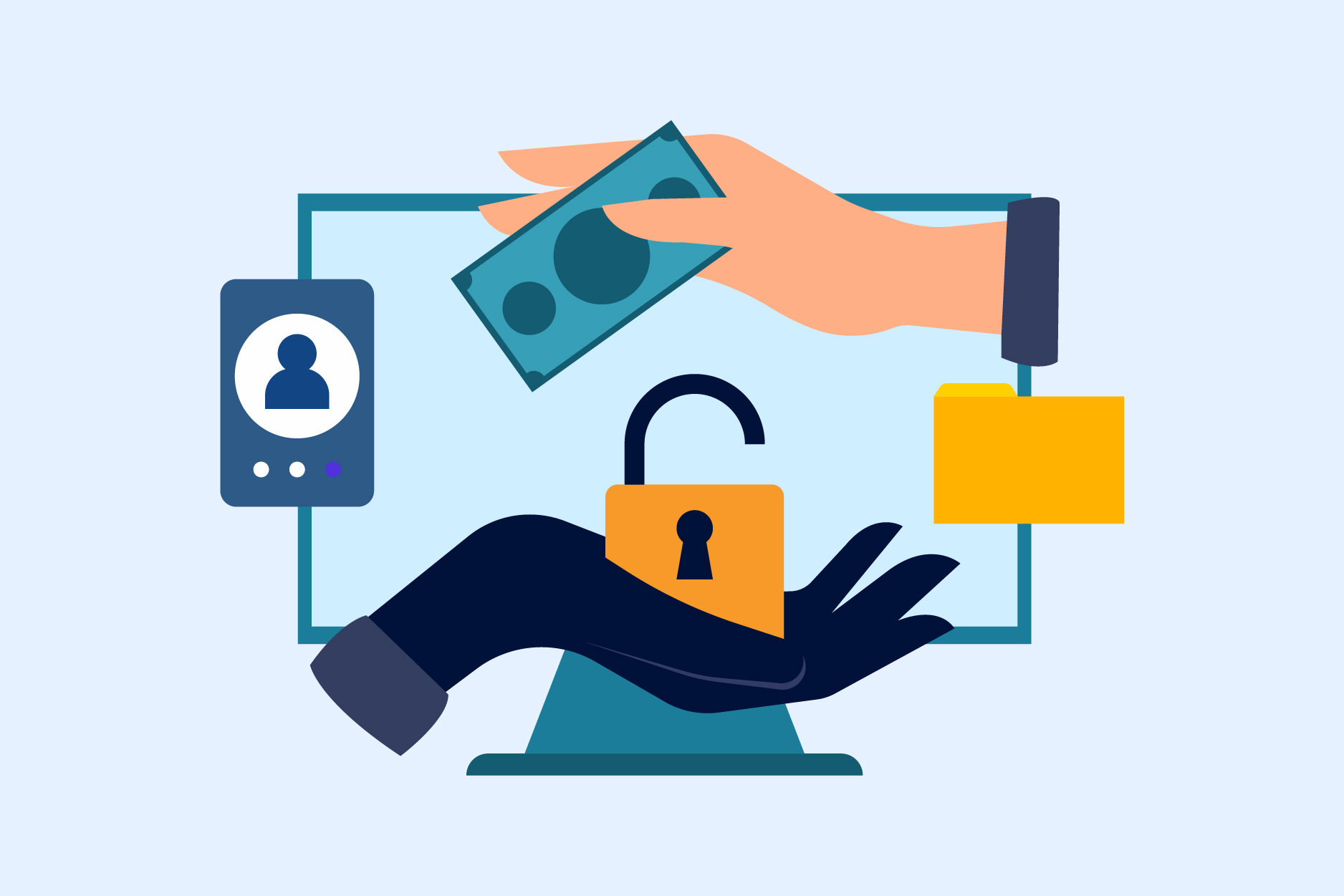Top 8 Cyber Security Skills to Learn In 2025
According to a recent study, 65% of businesses aim to raise cyber security investment, resulting in a market increase of $270 billion by 2025. This provides an opportunity to step up and embrace the chance. Professionals need to understand the skills required in the field of cyber security.
Working in cyber security entails combining various technical and interpersonal abilities. Possessing the right set of knowledge is crucial to land a good job. So which skills should you prioritize? To help you understand the same, this blog covers cybersecurity skills that are in great demand today.
What is Cyber Security?
Cyber security is the safeguarding of web systems from cyber threats such as data, software, and hardware. Both individuals and organizations utilize this method to prevent the illegal use of information.
Moreover, a robust cyber security approach offers decent security against hacking attempts. Such hacking attempts aim at gaining access to, altering, deleting, or destroying an organization’s or person’s networks and confidential material. Cybersecurity is also crucial in combating different types of cyber security attacks that try to degrade or impair the functioning of a system.
Top 8 Cyber Security Skills
Cyber security specialists operate within a company’s IT department to safeguard data, systems, and networks. Here are the skills you need to secure a cyber security job and grab other in-demand security roles.
1. System Management and Networking
It is crucial to possess a deep knowledge of networking to start a career in cyber security. It can help you comprehend the technical aspects of data transmission, assisting you in safeguarding your property. Mastering system administration is another aspect you should focus on. It all comes down to configuring and managing computers. So, ensure that you are good with that.
2. Operating System
In-depth knowledge of systems is another crucial cybersecurity skill as systems are the backbone of cybersecurity. You can start by learning common operating systems and mobile and desktop systems.
It is also beneficial to learn command-line applications such as Linux’s Terminal. One of the most crucial Linux-based operating systems is Kali Linux. It includes numerous applications for penetration assessment, malware detection, digital forensics, etc.
3. Network Security Controlling
Network security includes all the different methods for improving network integrity. To understand this better, you need to have a basic understanding of how systems, firewalls, routers, etc., perform.
A firewall refers to a segment of software or hardware that prevents incoming or outgoing web traffic from entering your system. As a security professional, you must utilize a firewall to monitor and block illegal network activity. You should also be familiar with VPNs, intrusion protection systems, and remote tracking.
Also Read: Advantages of Cyber Security
4. Coding
The following are some of the computer languages you can learn:
- C and C++: These are low-level coding languages that every cyber security practitioner should know.
- Python: Python is an established high-level programming language quickly gaining favor among cyber experts. It can help you detect and mend vulnerabilities.
- JavaScript: Mastering JavaScript gives you the ability to combat cross-site script assaults.
- PHP: As most web pages are built with PHP, comprehending it will enable you to fight against attackers.
- HTML: This language is used by many websites and is perfect for beginners.
- Go Lang: It is an excellent language for cryptography. It further tackles numerous cyber security concerns.
- SQL: This language is used by intruders to alter stored information; one case is the SQL injection attack. Thus, having an excellent grasp of Structured Query Language proves beneficial.
- Assembly Language: The Assembly language will assist you in discovering how ransomware behaves and guard against it.
5. Cloud Security
Cloud security is one of the most important cyber security skills businesses look out for. Companies are turning to cloud infrastructures to retain data and execute services. This includes safeguarding cloud-based devices and networks through policies and technologies. You can learn more about cyber security by taking an ethical hacking course.
Cloud security, similar to application development security, entails designing security mechanisms. Professionals with a background and understanding of operating large platforms, like Microsoft Azure and Amazon Web Services, can be a great fit.
6. Blockchain Security
Blockchain is gaining popularity, primarily due to the safety it provides. This is why cybersecurity experts should know about blockchain and how it addresses security concerns.
The complexity of blockchain renders it hard for attackers to breach and will most certainly make breakthroughs in certain areas. These include gadgets connected to the Internet of Things, network configuration, authentication control, supply chain integration, and mobile computing.
7. Internet of Things (IoT)
IoT is concerned with the safety of internet-connected devices and networks. A significant percentage of IoT devices prioritize security, which is critical for the future sustainability of the web ecosystem. It is important given many internet devices visit connections without human involvement or supervision.
Thus, it becomes one of the most in-demand cyber security skills. By mastering this skill, you will become capable of investigating privacy and security challenges in the field of IoT.
8. Artificial Intelligence (AI)
Artificial intelligence, like blockchain, is a fairly recent concept. AI is ideal for the cyber environment since it improves the consistency and dependability of cyber security policies. It assists security personnel in identifying suspicious behavior and imparting a better awareness of the virtual world.
AI offers automation and assistance that human skills cannot match. It detects risks that would otherwise go unreported and untreated. It can also be taught to develop and grow, making it more capable of dealing with new potential attacks and hacking approaches.


Soft Skills Required in Cyber Security
One of the most important qualities for those looking to enter a career in cyber security is building competency not only in hard technical skills but also in soft ones. By honing this particular set of five soft skills, you will be better equipped to handle any challenges.
Inquisitivity and Curiosity
Being curious and inquisitive is a must-have skill for anyone in cyber security. Professionals need to have an innate desire to understand how and why things work, as this helps them stay on top of the industry’s ever-changing challenges. To do so, they should be willing to ask questions or seek out advice from experienced professionals who can provide guidance when needed.
Communication
Being successful in cyber security also requires strong written and verbal communication skills. Cybersecurity professionals need to be able to explain complex technical concepts clearly within business contexts for a diverse range of audiences, from non-technical senior management or customers to highly experienced engineers.
Problem-Solving
- Strong problem-solving skill is essential for every cybersecurity professional as the challenges you face will often require creative solutions outside of what’s been done before. In order to address these issues efficiently, it helps immensely if you have the following.
- Information-gathering techniques (such as data mining)
- Research methodologies (like reverse engineering)
- An appetite for continuous learning
Adaptability
Adaptability is an essential soft skill required for success in the rapidly changing field of cyber security. It’s important to stay current on the latest developments and best practices as well as be able to adjust quickly when goals or objectives shift due to changes in organizational needs or industry trends. As a professional working within this space, it’s critical that you remain flexible and open-minded so that your skills are relevant for years to come.
Business Mindset
In order to be successful in the field of cyber security, a professional must possess business acumen and an understanding of how IT systems relate to various areas within organizations. Furthermore, they need knowledge about cyber vulnerabilities that can potentially lead to risks for the company as digital transformations evolve. With an understanding of not only IT but also key areas like finance and marketing, they can make decisions that are in the best interest of both short-term operational success and long-term strategic goals.
Also Read: Phishing in Cyber Security
How to Develop Cyber Security Skills?
Here are some steps you can take to develop your skills in cybersecurity.
1. Get Certifications
If you want to strengthen your skills in cyber security, look into obtaining the appropriate accreditations, such as Certified Ethical Hacker (CEH), Offensive Security Certified Professional (OSCP), and Certified Information Security Auditor (CISA). These certifications are easily available online.
2. Be Up-to-Date
To improve cybersecurity skills, it is important to stay up-to-date with the latest technological developments, threat risks, and best practices in your industry. This can be done by reading industry publications/websites, subscribing to newsletters, attending conferences/workshops, and following large technology companies on social media.
3. Develop Your Technical and Soft Skills
To improve cybersecurity skills, it is important to develop both technical proficiency and soft skills. You should know about different frameworks intended to help safeguard an organization’s records. Soft skill development may include improving interpersonal, leadership, and time management abilities. Acquiring these essential skills can help an individual stand out as a candidate for promotions or managerial roles in the field of cybersecurity.
Conclusion
Cyber security professionals serve as an organization’s security force. Through their deployed technology, they keep any undesirable and threatening parties at a distance. You can quickly grow to be an in-demand cyber expert by studying the cyber security skills outlined in this blog.







